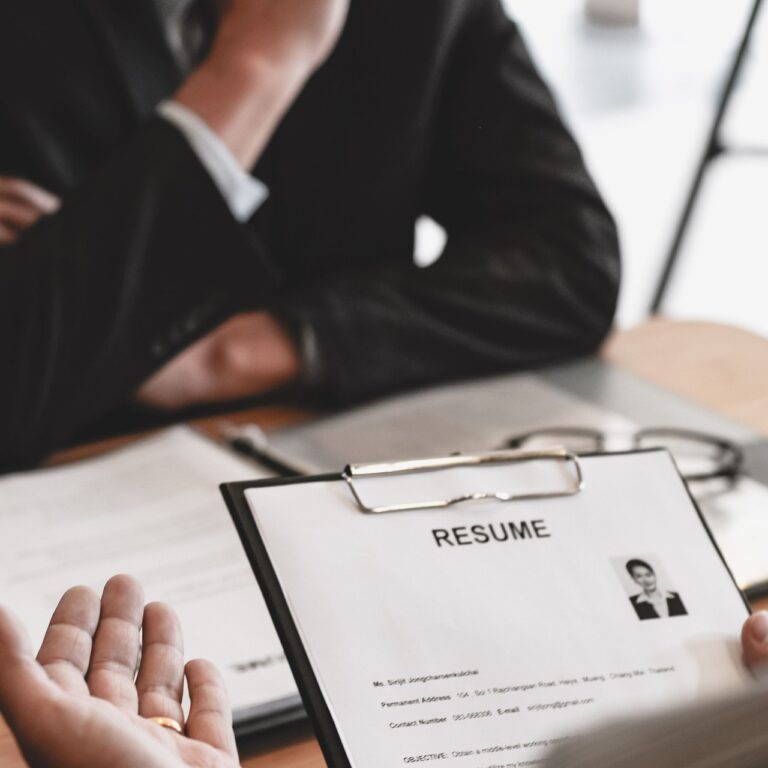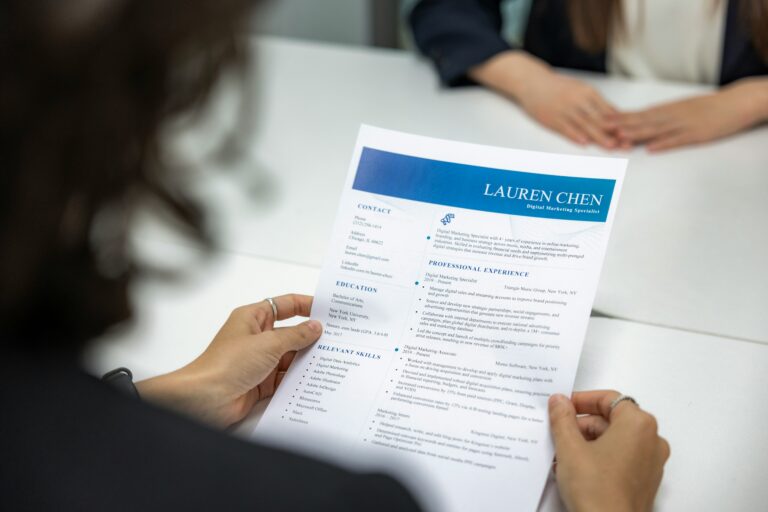Introduction
Non-technical interviews are an essential part of the hiring process across various industries. While technical skills are crucial, employers also look for candidates with strong interpersonal abilities, cultural fit, and soft skills that contribute to the overall success of the team and organization. Preparing for a non-technical interview requires a strategic approach to showcase these attributes effectively. This article will provide a comprehensive guide on how to prepare for a non-technical interview, covering everything from research and self-assessment to practicing common questions and refining your interpersonal skills.
1. Research the Company
a. Understand the Company Culture
One of the first steps in preparing for a non-technical interview is to research the company’s culture. Employers want to hire candidates who align with their values and work environment. Visit the company’s website, read their mission and vision statements, and explore their social media profiles. Pay attention to any mentions of their core values, community involvement, and employee testimonials.
b. Study the Job Description
Analyze the job description carefully to understand the responsibilities and required qualifications. Identify key skills and attributes the employer is looking for and think about how your experiences and skills match those requirements. This will help you tailor your answers to demonstrate that you are a good fit for the role.
c. Learn About the Industry
Having a broad understanding of the industry in which the company operates can give you an edge during the interview. Read industry news, trends, and challenges to show that you are well-informed and interested in the field. This knowledge can also help you formulate insightful questions to ask the interviewer.
2. Self-Assessment and Reflection
a. Identify Your Strengths and Weaknesses
Reflect on your past experiences to identify your strengths and weaknesses. Think about specific examples where you demonstrated key skills such as leadership, teamwork, problem-solving, and adaptability. Be honest with yourself about areas where you can improve and consider how you are working to develop those areas.
b. Prepare Your Elevator Pitch
An elevator pitch is a brief summary of who you are, what you do, and what you are looking for in a job. It should be concise, engaging, and tailored to the specific role you are applying for. Practice delivering your elevator pitch confidently to make a strong first impression.
c. Align Your Career Goals with the Role
Think about your long-term career goals and how this role fits into your plan. Be prepared to discuss how the position aligns with your aspirations and how you can contribute to the company’s success. Employers appreciate candidates who have a clear sense of direction and purpose.
3. Practice Common Interview Questions
a. Behavioral Questions
Behavioral questions are designed to assess how you have handled situations in the past, as past behavior is often a predictor of future performance. Use the STAR method (Situation, Task, Action, Result) to structure your answers. Common behavioral questions include:
- Can you describe a time when you faced a significant challenge at work and how you handled it?
- Tell me about a time when you had to work as part of a team to achieve a goal.
- Give an example of a situation where you showed initiative and took the lead.
b. Situational Questions
Situational questions present hypothetical scenarios to evaluate your problem-solving and decision-making skills. Think through these scenarios and explain your thought process clearly. Examples of situational questions are:
- How would you handle a conflict with a coworker?
- What would you do if you were given a tight deadline for a project?
- How would you approach a situation where you had to learn a new skill quickly?
c. Questions About Your Experience and Skills
Interviewers will often ask questions about your previous work experience and how it relates to the job you are applying for. Be ready to discuss specific projects, responsibilities, and achievements. Examples include:
- What are the most important skills you have developed in your career?
- Can you describe a project you worked on that you are particularly proud of?
- How have your past experiences prepared you for this role?
4. Develop Strong Communication Skills
a. Verbal Communication
Clear and concise communication is vital during an interview. Practice articulating your thoughts and answers to potential questions. Avoid using filler words such as “um,” “like,” and “you know.” Instead, pause briefly to gather your thoughts before responding.
b. Non-Verbal Communication
Non-verbal cues, such as body language, facial expressions, and eye contact, play a significant role in how you are perceived during an interview. Maintain good posture, offer a firm handshake, and make eye contact with the interviewer. Smile and nod to show that you are engaged and interested in the conversation.
c. Active Listening
Active listening is crucial in an interview setting. Pay close attention to the interviewer’s questions and comments, and respond thoughtfully. Avoid interrupting and ensure that your answers address the question directly. Show that you are genuinely interested in what the interviewer has to say by asking follow-up questions and clarifying any points you do not understand.
5. Prepare Questions for the Interviewer
Asking thoughtful questions during an interview demonstrates your interest in the role and the company. Prepare a list of questions to ask the interviewer about the team, company culture, and the specifics of the role. Examples include:
- Can you describe the team I would be working with?
- What are the biggest challenges the team is currently facing?
- How do you measure success in this role?
- What opportunities for professional development does the company offer?
6. Dress Appropriately
First impressions matter, and your attire plays a crucial role in how you are perceived. Research the company’s dress code and choose an outfit that is professional and appropriate for the industry. When in doubt, it is better to be slightly overdressed than underdressed. Ensure that your clothes are clean, pressed, and fit well.
7. Mock Interviews
a. Conduct Practice Interviews
Practicing with a friend, family member, or mentor can help you refine your answers and receive constructive feedback. Treat these mock interviews as if they were real, dressing appropriately and maintaining a professional demeanor.
b. Use Online Resources
There are numerous online resources and tools available to help you prepare for non-technical interviews. Websites like Glassdoor provide insights into common interview questions for specific companies, while platforms like Interviewing.io offer mock interview sessions with industry professionals.
8. Manage Interview Anxiety
a. Practice Relaxation Techniques
Interviews can be nerve-wracking, but practicing relaxation techniques can help you stay calm and focused. Deep breathing exercises, meditation, and visualization can reduce anxiety and boost your confidence.
b. Get a Good Night’s Sleep
Ensure that you get plenty of rest the night before your interview. A good night’s sleep will help you feel more alert and capable of handling the interview with a clear mind.
c. Arrive Early
Plan to arrive at the interview location at least 10-15 minutes early. This will give you time to compose yourself and avoid the stress of rushing. If the interview is virtual, test your technology and set up your space well in advance.
9. Follow Up After the Interview
a. Send a Thank-You Email
Sending a thank-you email within 24 hours of the interview is a courteous gesture that shows your appreciation for the interviewer’s time. In your email, reiterate your interest in the role and briefly mention a highlight from the interview that reinforced your enthusiasm for the position.
b. Reflect on the Interview
Take some time to reflect on the interview experience. Consider what went well and identify areas for improvement. Use this reflection to better prepare for future interviews.
c. Be Patient
The hiring process can take time, so be patient while waiting for a response. If you haven’t heard back within the timeframe provided by the interviewer, it is acceptable to send a polite follow-up email to inquire about the status of your application.
Conclusion
Preparing for a non-technical interview involves a combination of research, self-assessment, practice, and developing strong communication skills. By understanding the company culture, reflecting on your experiences, practicing common interview questions, and managing your anxiety, you can approach your non-technical interview with confidence. Remember to follow up after the interview and reflect on your performance to continuously improve your interview skills. With thorough preparation and a positive attitude, you can make a lasting impression and increase your chances of securing the job.





